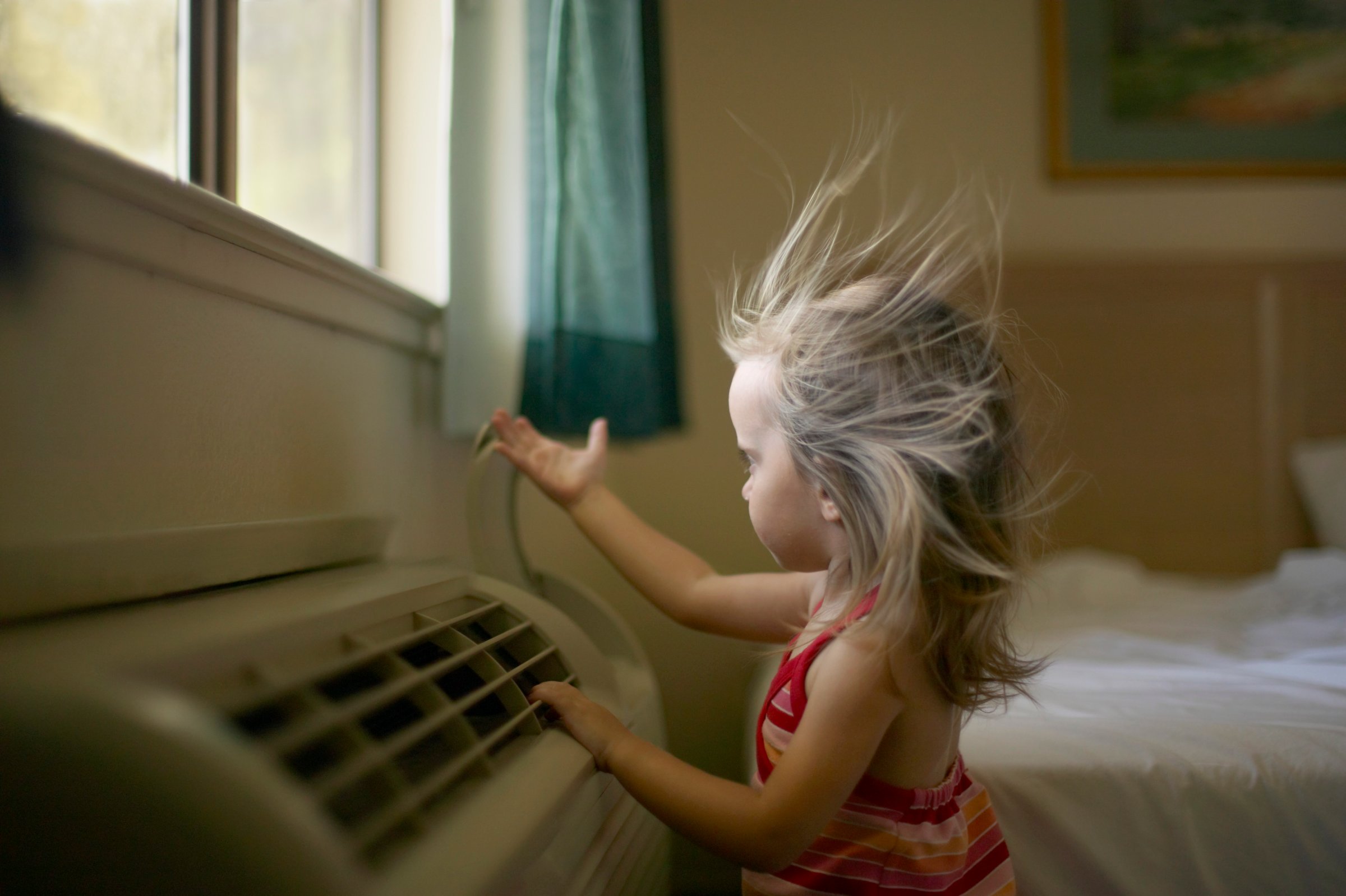
All-time summer heat records keep buckling under the weight of rising global temps—a trend that hits home, literally and figuratively, when you receive your monthly air conditioning bill. Unfortunately, mistakes you’re making with your home AC may be undercutting its efficiency, effectiveness, and safety, experts say.
“If you have a badly maintained system, it can become contaminated with microorganisms that may be harmful if inhaled,” says Mark Mendell, a staff scientist with the Lawrence Berkeley National Laboratory’s Indoor Environment Group. Mendell mentions asthma problems and allergies as some of those possible harms.
Here are eight of the most common mistakes people make when it comes to home AC, and some simple adjustments that can save your lungs and wallet.
You Aren’t Changing or Cleaning Your AC Filters
At a minimum, you should be changing the filter on your central AC unit once every three months—and as often as once a month if your system is running all the time.
Neglect this chore, and a dirty filter can lead to poor air flow or freezing up of your unit’s evaporator coil, says James Braun, a professor of engineering and director of the Center for High Performance Buildings at Purdue University. A filthy filter could add 5% to 15% to your AC bill, and will shorten the lifespan of your whole system. Fortunately, replacement filters are pretty cheap—usually less than $10.
If you have ductless “split” AC units, there should be a removable panel on your unit that will allow you to wipe off the filter with a rag—no replacement necessary.
You’re Not Having Your System Serviced Annually
You could look up online video tutorials about cleaning your AC unit’s coils and fins—necessary maintenance operations that keep your system up and running efficiently, Braun says. You could also bring in a pro to service your system once a year. The U.S. Department of Energy offers some tips when searching for AC service contractors.
You Don’t Have a Programmable Thermostat
Maybe you’re one of those superhumans who always remembers to adjust the thermostat before leaving the house. But if you’re like the rest of us, a programmable thermostat can save you hundreds on your annual AC bill by automatically raising the temp at those times of day when you’re at work or away from home, Braun says. Newer phone-controllable “smart” thermostats make programming even simpler, he adds.
You’re Setting Your Thermostat Too Low
Research shows the human body is capable of adapting to hot or cool temperatures pretty quickly—like within a week or two. When you consider you’ll cut up to 3% off your AC bill for every degree you raise the temperature—not to mention the potential environmental benefits of lowering your AC use—it’s worth sweating through that adjustment period and setting your thermostat somewhere in the high 70s (or higher if you can handle it).
You’re Not Taking Full Advantage of Fans
Any type of fan, but especially ceiling fans, can help keep cool air circulating throughout your home. That removes some of the burden from your AC system, Braun says. Just be sure your ceiling fans are turning counterclockwise during the summer, which promotes greater air flow.
Your Thermostat and/or Vents Are Poorly Positioned
If the sun or a nearby lamp blasts your thermostat for big chunks of the day, that could throw off its readings and cause it to crank your AC even though your place is pleasantly cool. Especially if you’re away during the day, you may not realize your system is working overtime due to a misplaced thermostat, Braun says.
Blocking AC vents with furniture or curtains can also limit air circulation. Unless you spend a lot of time huddled under your sofa, you’ll want to be sure your AC vents are unobstructed.
You’re Cooling Empty Rooms
If AC vents are open in every room of your house, you’re chilling a lot of real estate that may not be in use on a day-to-day basis. Walk around and close those AC vents that open onto unoccupied rooms. Also, closing closet doors ensures those spaces aren’t swallowing your cold air.
You Don’t Have Blinds Or Curtains
Bright sunlight is your AC system’s nemesis. By closing blinds and sliding curtains to block the sun’s rays, you’ll also shield your space from the sun’s heat, experts say.
More Must-Reads from TIME
- Cybersecurity Experts Are Sounding the Alarm on DOGE
- Meet the 2025 Women of the Year
- The Harsh Truth About Disability Inclusion
- Why Do More Young Adults Have Cancer?
- Colman Domingo Leads With Radical Love
- How to Get Better at Doing Things Alone
- Michelle Zauner Stares Down the Darkness
Contact us at letters@time.com